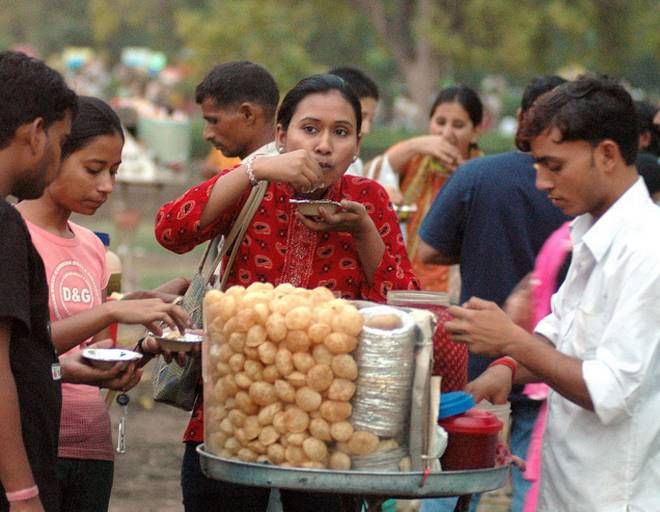Diet Plan For Safe Monsoon!
The first showers of the monsoon provide relief from the intense heat of summer. However, the rain also brings some health issues that can spoil your mood like food poisoning, diarrhoea, dysentery and cholera. And not all are water-borne. So it is necessary to keep a sharp eye on what you're eating and drinking.
There are some precautions and diet modifications that will help keep you healthy. Here are some basic ones.
- Drink warm beverages. Add mint or ginger or dry ginger powder to tea and hot milk.
- Avoid street and junk food, as very few people have the high immunity to handle the bacterial overload at such places.
- Wash all fruits and vegetables thoroughly, especially leafy ones and cauliflower.
- Eat moderate quantities of food, as the body finds it hard to digest food.
- Avoid fried oily food that may cause acidity. Opt for grilled or tandoori items that require minimum oil/butter.
- Avoid using too much spice, as this promotes water retention and bloating. Go for medium or low salt food.
- Use plenty of garlic, pepper, ginger, asafoetida, turmeric, coriander and jeera, all of which enhance digestive power and improve immunity.
- Eat foods that are dry in nature. The most popular are makka (corn), chana(chickpea), besan (gram flour) and jow (oats).
- Eat light foods like vegetables, fruits, cereals etc and reduce consumption of meat or fish.
- Avoid sour foods like tamarind (imli), chutneys and pickles as they promote water retention.
- Also avoid eating cut fruits and vegetable outside home because there are more chances of bacterial growth and infection.
- Go for light meat preparations like soups and stews rather than heavy curries.
- Drink only boiled and filtered water.
- Drink plenty of water. Dehydration is possible.
- Don't consume dairy products in large amounts as they are prone to harbour germs at this time.
- Honey is an excellent tonic that helps keep the intestines sterile. It also assists in digestion.
- Eat bitter vegetables like karela (bitter gourd) and herbs like neem (basil), methi(fenugreek) seeds, haldi (turmeric) as they prevents infection.
- Fresh is the best for monsoon, so eat freshly cooked food. Avoid eating food straight out of the fridge. Fresh foods are the best, but if you like to store cooked food in the fridge, heat it gradually and thoroughly before eating.
- Consume lots of Vitamin C through amla and citrus fruits to boost immunity.
The appetite-robbing summer days are gone, and the cool monsoon tempts you to gorge on bhajiyas, sweets, and ever-larger helpings at mealtimes. After all, you have to make up for lost time! But temper that hearty appetite with a dose of caution; the monsoon is a time when diseases, particularly of the digestive system, are rampant.
The cardinal rule is never eat when you are not hungry. You can eat something in winter just because you find it appetising. Doing this in the monsoon is an invitation to indigestion and accompanying illnesses. Don't let the rain or the health troubles it brings with it get you down. Simply follow these tips and have a healthy monsoon.



+1.svg)
